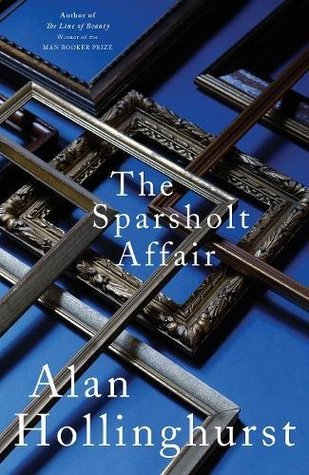The Sparsholt Affair by Alan Hollinghurst

Reviews of this book and many other of Hollinghurst’s books note the fine writing. The sentences in this book are well done, as usual, and the book has a goodly number of moments like those to be found in his other works: muscular men, the feel of taut bodies beneath clothing, seductions mundane and breathless, artful descriptions of sex, assessments of the attractiveness of all and sundry, and longing longing longing. I have read Hollinghurst with enjoyment and respect and that is about as far as it has gone, even in the celebrated novels. But I have never before found him dull. There is a good book in here somewhere but it is not Hollinghurst’s kind of book; he would have had to be willing to make an actual tragedy of David Sparsholt and his supposed charisma and attractiveness. Sparsholt is caught having a three way that lands in the tabloids and destroys his marriage and perhaps his successful engineering firm. He endures public humiliation that tears his family apart. But all that recedes far into the background. It is not what interested Hollinghurst, and instead we have the observer Freddie Green reporting on a story told to him about Sparsholt’s male-male encounter at Oxford and afterward we have the observer Jonny, David’s son, meandering through his life as an out gay man through several decades of encounters with the same set of people who knew his father, and a few others. One could construct a reading of the novel as being about changing views of gender and particularly of gay maleness but really most of what fills the pages is people hoping to seduce or be seduced by other people. Jonny’s gay marriage takes a back seat. Pat, his husband, is almost invisible. There is little or no exploration of being a couple. Jonny’s early frustration with Ivan, who likes older men, gets more attention. The whole effect is puzzling. But the pages are decorated with bits of art history, visits to gay clubs, a number of bulges in trousers, and the usual lovely writing, which is lovely, undoubtedly. But Virginia Woolf could write a lovely sentence about an ashtray and make you feel sublimely present in it. That does not happen in the present case. One reviewer I read noted that this might have been a fabulous book at 200 pages, but are there any 200-page Hollinghurst books? Nevertheless I did finish it. I will think of that as an accomplishment.
